Despite the housing market facing strong headwinds throughout much of last year, Kiwis were still making money from house sales – some pocketing as much as $10 million-plus.
Research from OneRoof and its data partner Valocity found more than 1500 suburbs where every property seller made a profit.
OneRoof and Valocity examined the 47,239 resales that took place in 2022. Just 1092 (2.3%) sold below their initial purchase price, with the majority of the pain occurring in the latter part of the year.
The biggest individual loss was $7.2m, for Sir John Key's former home in Parnell, Auckland, while the biggest gain was $13.2m, for a luxury home with a helipad on Waiheke Island.
Start your property search
The nationwide median loss was $57,750, while the nationwide median gain was just over $362,000.
Of the 1972 suburbs with one or more resale in 2022, there were 1533 where every property seller made an on-paper profit (selling their home for more than what they paid for it).
In Auckland and Wellington, the two cities worst affected by the slump, just 571 resales, out of a total of 14,625, were at a loss (527 in Auckland and 44 in Wellington).
Valocity’s head of valuation, James Wilson, says the statistics show there is still demand for well-presented homes in the right locations even in a softening market.
The surprise is so many properties sold at a profit across the country, but Wilson says there are a lot of people who bought at the top of the market who have not had to sell who are not reflected in the statistics.
“There might be a little bit of a pressure point equity-wise on paper but they're not having to sell.”
Events like the GFC show New Zealanders tend to tighten the belt and hunker down rather than dump the house and run, he says.
Banks here also work hard to help borrowers hold on to their homes, and Wilson says that is also reflected in the statistics with the data revealing the country has not been seeing widespread losses in the housing market.
“Perhaps the doom and gloom isn't as bad as it might appear to have been at face value anyway.”
Of the 650 suburbs with 20 or more resales, the data shows 10 had median gains of $1m and above, and five of those suffered no losses at all.
Homeowners in Omaha enjoyed the biggest resale profits, with the median gain in the wealthy beach town on the northern fringes of Auckland sitting at $2.01m.
Precision Real Estate agent Di Balich calls Omaha the “halo” suburb – the results do not surprise her.
“I call it the halo suburb of Auckland because I think we've got the best infrastructure, the best beach within an hour’s drive of Auckland.”
There has been no evidence of financial stress in her extremely high-end patch which attracts the kind of wealth that’s immune to recessions and housing downturns.
“I don't think current economic conditions impinge on their willingness to sell or not sell – people only move on if they want to live in Wanaka or Waiheke, they're just swapping one place for another, it's not for financial reasons.”
Anyone who thinks they can come into Omaha and get a bargain because of the economic climate is sadly disappointed because vendors realise the value of their properties, she says, although most of the people buying into Omaha also realise they have to pay their way in.
Balich says properties are taking a little longer to sell so far this year, given there is an element of uncertainty because of the economic environment, and also because of the upcoming election, but to date no property she has transacted has sold at a loss.
“Very healthy profits are still to be had – I can't see the market retracting at all.”
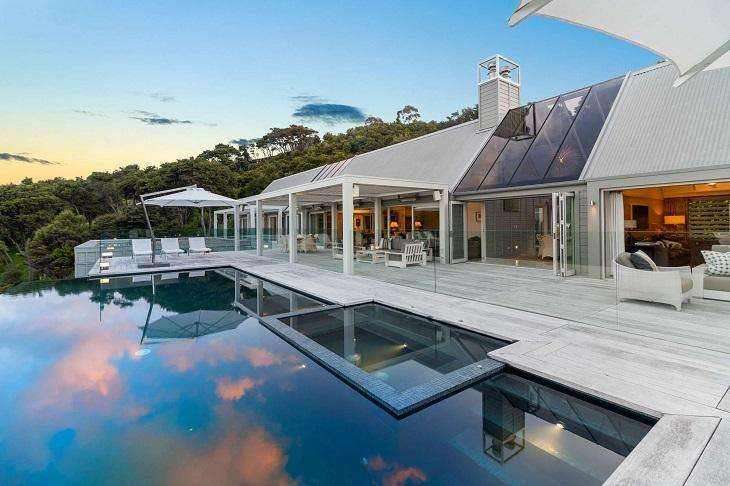
A luxury house on Waiheke Island made a resale gain of $13.2m after selling for $17.5m in December. Photo / Supplied
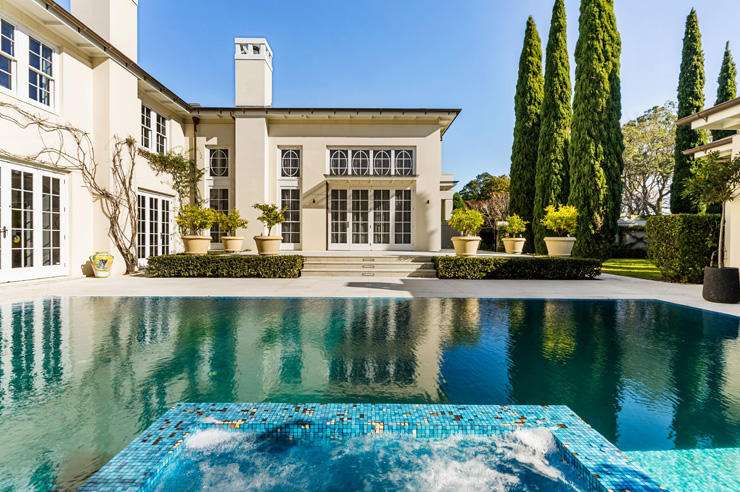
An Auckland house formerly owned by former Prime Minister Sir John Key suffered 2022’s biggest loss. Photo / Supplied
No property sold at a loss on Waiheke Island either. The median gain for homeowners on the island in 2022 was, from 134 resales, just shy of $1m.
One Waiheke seller struck gold, however. A home on Orapiu Road, bought for $4.3m in 2008 and given a multi-million-dollar upgrade, was resold just before Christmas for $17.5m – rewarding the vendor with an on-paper profit of $13.2m.
New Zealand Sotheby’s International Realty managing director for Auckland and Waiheke Island, Chris Jones, says a lot depends on when the property was sold compared to when it was purchased.
He thinks contributing to the Waiheke Island results is not many people who purchased recently having to sell their property.
“In other words, if they were bought at the height of the market and then sold quickly probably that would have impacted it so maybe that would be a factor.”
The market on the island has slowed down a lot this year, however, Jones says.
REINZ statistics for the first quarter showing the total residential market was down 49% in volume and 52% in value, and the median price down was about 14% – although that’s less than the 20% median price fall for the rest of Auckland.
“That's fairly significant but the median price is actually reasonably good, if you look at the rest of the real estate market.”
The island has limited property available and rules around the reticulation system means there won’t be big developments either, which means there is a relatively controlled amount of stock available.
“As long as demand stays firm for people that want to live on Waiheke then we should continue to see stable prices, but definitely we haven't been immune.”
Canterbury had the highest number of suburbs where every seller made a profit in 2022 (207 out of a total of 267) but West Coast had the highest share, with 95% of its suburbs with a clean scorecard.
Kevin O’Donnell, business owner of Harcourts West Coast, says the West Coast has been booming, and still is, in part because it is still so cheap to buy there.
“Let’s be honest, the West Coast is probably still the most economic area for people to buy in.”
The average value for Greymouth district is around $389,000, which is up from pre-Covid levels of around $259,000, he says.
People in other parts of the country who have been struggling with inflation and high mortgage rates have been looking to downsize their mortgages by moving to the Coast.
Selling up properties in more expensive areas means they are able to pay more for West Coast homes while still having money left in their pocket – that’s a win for them and also for West Coast sellers.
Unlike other parts of the country, there has been no market slump on the Coast with people still queuing up to buy, he says.
“In the short-term future I can't see that changing and I'm basing that solely at the moment on the amount of email inquiry we're getting from outside the West Coast.”
The interest is across the board, too, from those wanting big lifestyle properties to mid-range properties, and from first-time buyers to investors.
The data showed there were eight "no-loss" suburbs with more than 100 resales that turned a profit, the majority of which were in Christchurch.
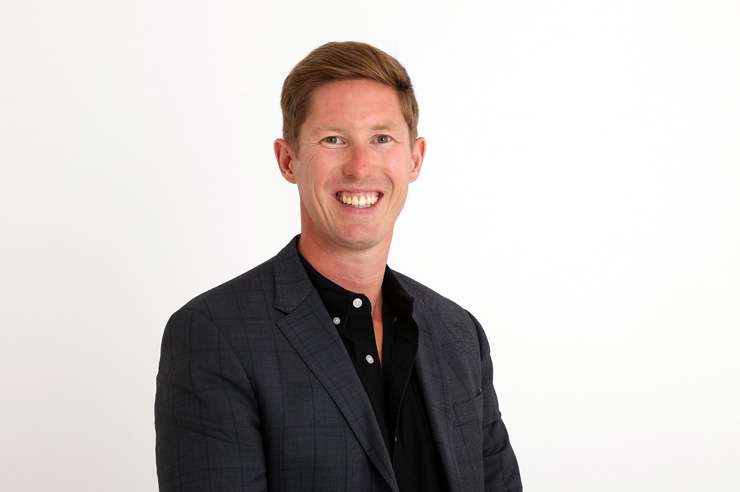
Valocity head of valuations James Wilson: "Perhaps the doom and gloom isn't as bad as it might appear." Photo / Fiona Goodall
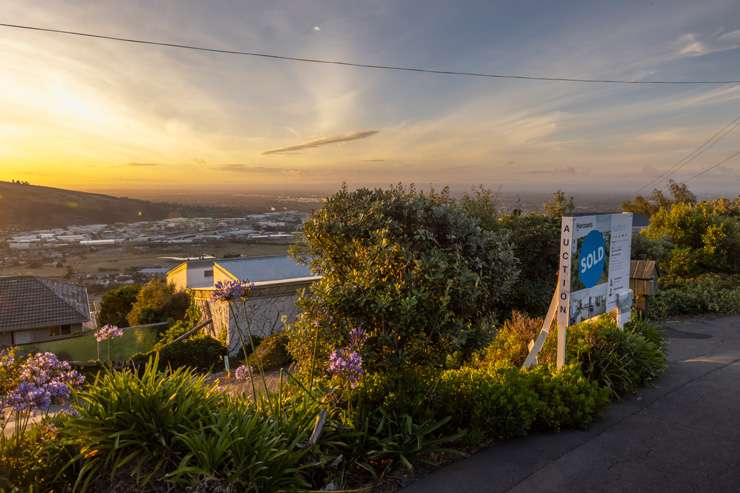
Christchurch’s median resale gain in 2022 was $283,000 while the median loss for sellers in the city was $40,000. Photo / Peter Meecham
Wilson says the no-loss suburbs are spread out around the country and represent suburbs which are more immune to the ups and downs of economic conditions.
What they have in common is most were not significant investor-dominated suburbs, he says, meaning they had more sustainable owner-occupier growth.
“Even in a soft market like this, mum and dad still have to buy and sell so there are less hyped suburbs and the consistent theme is that they are less impacted by the exodus of investors or the nervousness of first-home buyers – there are just good old Kiwi suburbs that kind of just tick along in any market.”
Greg Brunton, sales manager for Bayleys Hawera, describes the South Taranaki town at the top of the “no-loss” list as a “good, solid” rural service town, and still one of the cheapest in New Zealand to buy in.
The reason no one made a loss probably comes down to Hawera making the biggest gain the town had seen for the last 15 years at the height of the market so anyone who bought two to five years ago would be hard-pressed to make a loss, he says.
“We were selling houses for $195,000 not that long ago, four or five years ago, and now those houses are $399,000 to $449,000.”
Most properties in Hawera have gone up $200,000 but those prices are still not expensive compared to centres outside the area where “everything’s $1m”.
“They're at that cheaper end but still there's been a $200,000 gain.”
Brunton says Hawera is cheaper probably because the town is on a peninsula on the West Coast and is not that easy to get to from the main centres.
There are about 10,000 people with another 3000 in the outer lying areas and the town is halfway between Whanganui and New Plymouth.
Brunton thinks roughly half of their buyers at the peak of the market were from out of town but that number has dropped down to about 10%.
Of the eight “no loss” suburbs four were in Christchurch and Gill Knight, director of Whittle Knight, says one reason is the Christchurch market traditionally plateaus rather than drops.
“It eases off and you look at the graph over the years it levels out, flattens off, and then stays the same for a couple of years and then steps up again another notch and levels off again so it's sort of a staircase going up rather than peaks and troughs.
“I think we're still that same scenario with our present market so I think we are well placed.”
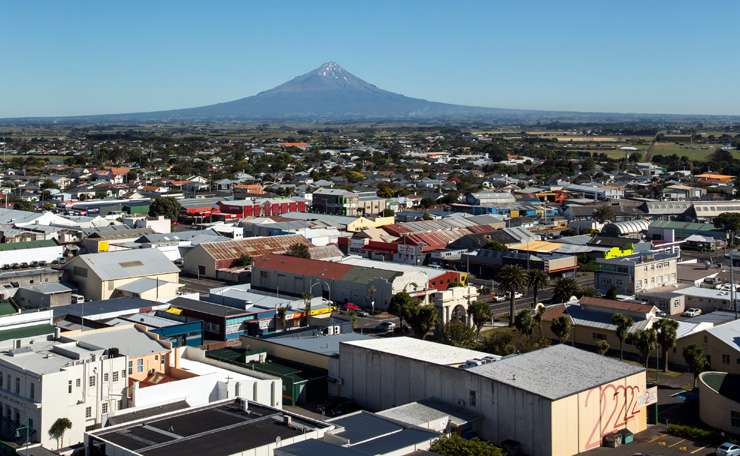
Hawera, in South Taranaki, saw 156 resales in 2022 - all which made a profit on paper. Photo / Getty Images
He also says people in Christchurch don’t have to mortgage themselves to the hilt the way they have to in places like Auckland in order to get on the property ladder so are more resilient, and he points out owners tend to hang on rather than sell for less than they paid for a property.
That may change towards the end of the year as more mortgages roll over and people are faced with having to pay a lot more, but that’s not the case so far, he says.
He also says the no-loss suburbs are solid ones with more affordable housing that are popular with first-home buyers, and some with investors.
Ben Donaldson, branch manager for Harcourts Avonhead, agrees his suburb is a solid family area which has consistent turnover but says there is also good retention because of the good school zones.
“What happens in the heat of the market is that popular areas go in and out of fashion but areas like Avonhead remain stable and popular.
“I think a lot of those areas that are affected by the huge growth take the fall faster.”
Because it’s an older suburb, Avonhead also has more diversity of stock and that helps retain value because people buying there know they are not buying a property the same as the one next door.
“There's more diversity and natural architecture in the area I believe.”
Up north, Warkworth was the Auckland suburb with the highest number of resales that made a profit. 94 sales in 2022. Point Chevalier the next highest (92), then Silverdale (90).
However, the best strike rate in terms of volume of sales was Papamoa Beach, in Tauranga, which had 377 resales that turned a profit and five that sold at a loss; followed by Rolleston, in Canterbury, where 350 resales turned a profit and four made a loss.
Wilson says Papamoa Beach and Rolleston have different drivers – Rolleston, the largest town in Selwyn District, surged due to first-home buyer activity through the post-Covid boom then towards the end of the boom investors actively returned to the market so the town had a double surge.
“It never really saw that prolonged pause that other suburbs saw around it.”
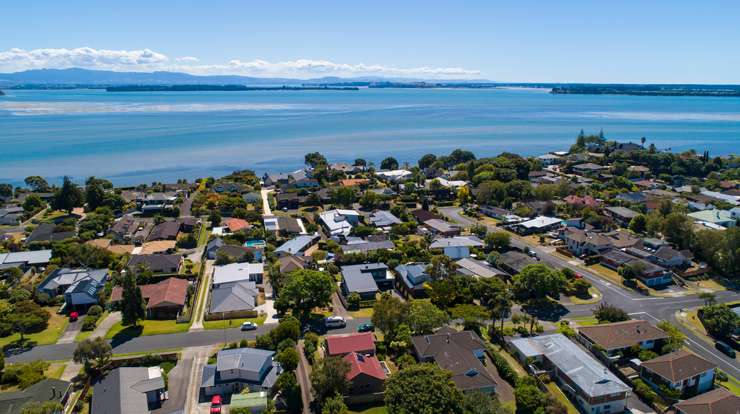
Papamoa Beach, in Tauranga, saw 377 resales in 2022, of which just five sold at a loss. Photo / Getty Images
Papamoa Beach, on the other hand, is different. The coastal Tauranga suburb has become popular because of the water factor and has seen some big sales.
Not a lot comes to market so properties with coastal views are probably driving profits in the desirable, growing suburb which is seeing a strong demand for stock, Wilson says.
The largest number of resale losses was in Auckland Central (149 loss-making properties v 301 properties that turned a profit). The apartment-heavy suburb, which was hit hard by the drop in international students during Covid and the tougher financial landscape for investors, was an outlier, though, with the number of loss-making deals in other suburbs largely confined to single figures.
The region with the highest median gain was Auckland, at $490,000, while Wellington had the highest median loss at $70,000, but Queenstown-Lakes sellers in 2022 did best, with the city’s median profit reaching $625,000.















































































